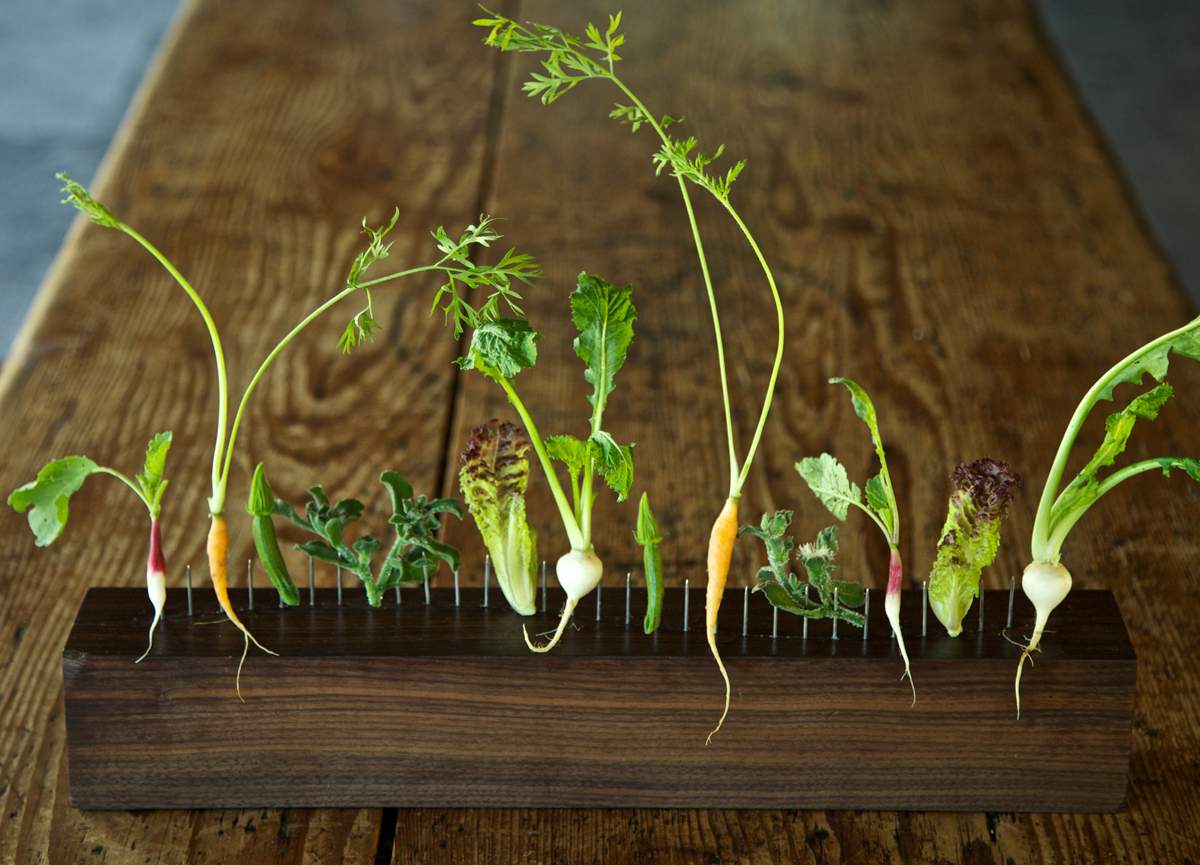Dan Barber, featured in Mindful’s April 2015 issue, is no ordinary chef. He is working to transform the way we eat, and not just by adding “farm fresh” labels to our food, but by creating an entire system that respects the environment while delighting our taste buds. Blue Hill is not only his famous restaurant, but also the 130-acre farm owned by Barber’s family that produces the ingredients he uses in his ever-changing menus.
Barber is showcased on an episode of Netflix’s Chef’s Table, where his food is beautifully presented along with his message. In this excerpt, he talks about how a plate of food can be a powerful source of change.
Every day, Barber creates a new menu based on what is harvested that same day. He recognizes the importance of changing with the seasons in order to sustain the environment that produces our food, which means his menu depends on what is most fresh at the moment. Barber respects the ways of the past when “cuisines and patterns of eating and traditions evolved out of what peasants negotiated from the landscape,” he says. Farmers had to “figure out what crops worked in rotation to produce food that was harvestable and nutritious and delicious,” and that’s what Barber is doing now. He believes that our current eating habits and agricultural methods are economically and ecologically unsustainable, which pushes him to work to change them.
The traditional American dish currently consists of a big steak with vegetables as a side dish, and Barber wants to flip that on its head. The way in which we eat now is unsustainable, as we move from one trendy food to another. Demanding specific foods that require more natural resources isn’t working either, Barber says, and it’s leading to ecological collapse all over the world. “We’ve got to get to know the nuts and bolts of farming, so we can create a diet that supports it,” he says.








